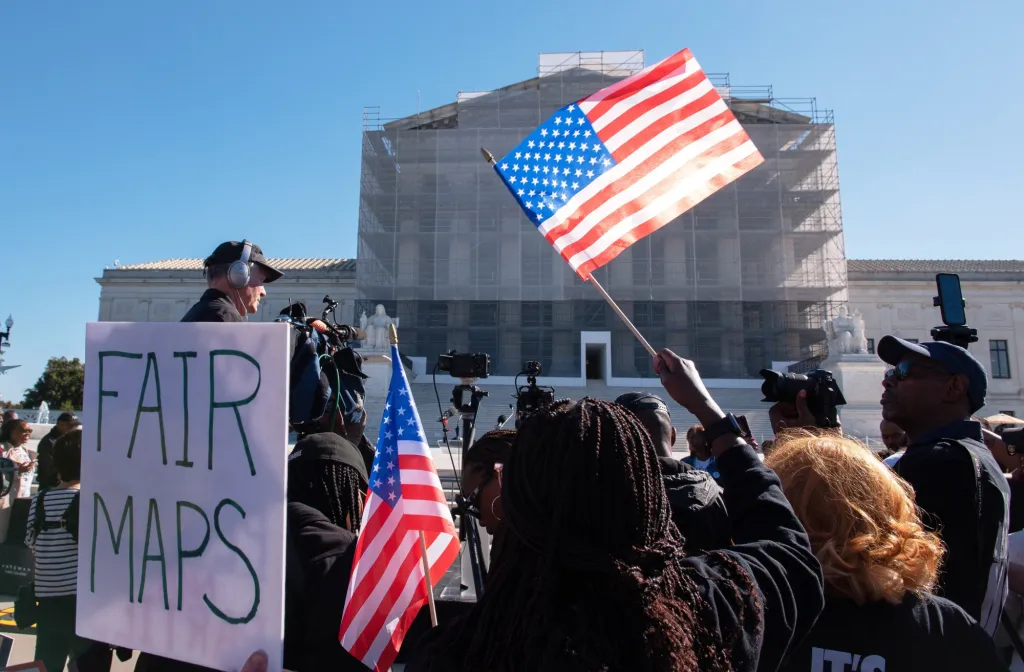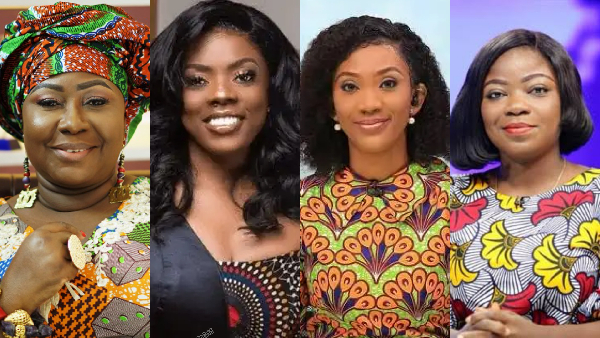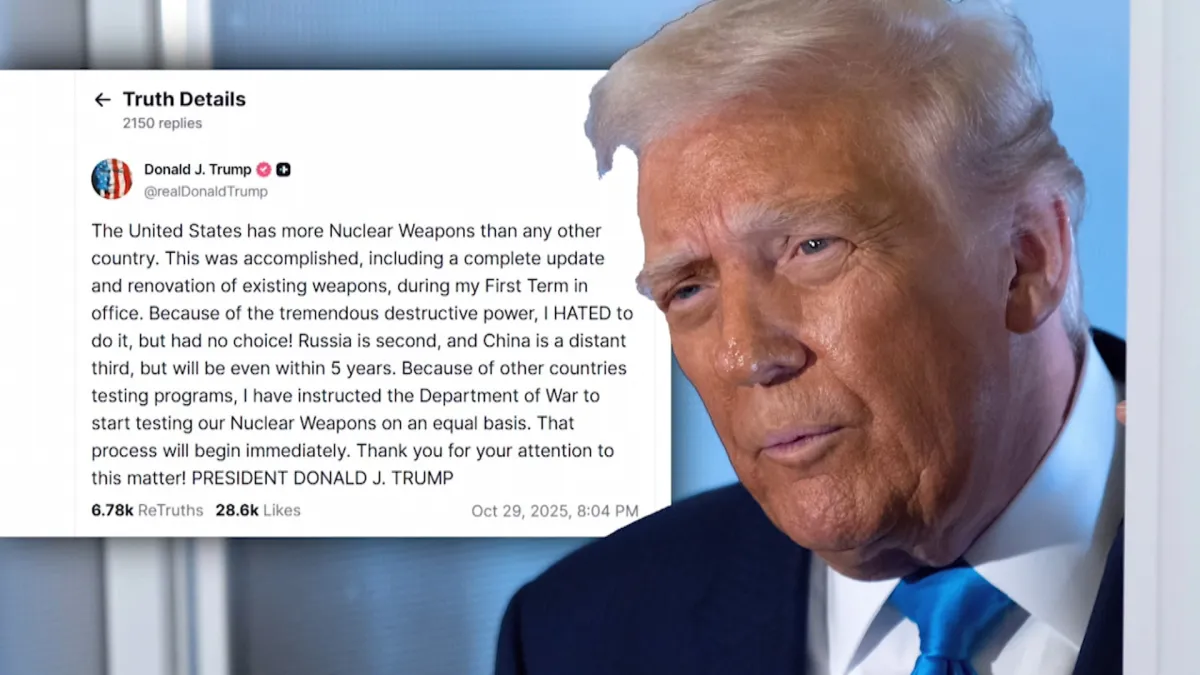Copyright Norfolk Virginian-Pilot

VIRGINIA BEACH — A pending U.S. Supreme Court case that could eliminate race as a determining factor in how election districts are drawn would have major implications for Virginia Beach, experts say. The case, Louisiana v. Callais, was heard by the court this month and has drawn the attention of players in the ongoing tug-of-war over Virginia Beach’s election system ahead of Tuesday’s referendum vote on the matter. Virginia Beach currently has 10 single-member districts, including three districts where minority residents form a majority of the voting population. The referendum asks whether voters support that system (10-1) or one that reduces the number of district-based seats and adds three at-large seats (7-3-1). The Supreme Court case challenges the constitutionality of Louisiana’s congressional map. It originated with a legal challenge over redistricted maps by Black voters in 2022, which resulted in redrawn maps that created two majority-Black districts in 2024. Louisiana has six congressional districts. Previously only one district had a majority Black population despite Black residents making up about 33% of the state population. A group of non-Black voters challenged the 2024 map, and the court is now considering whether lawmakers properly balanced constitutional and Voting Rights Act protections when enacting the new congressional map — placing the legality of race-based districting under a judicial microscope. Voting Rights Act The Voting Rights Act was enacted in 1965 to protect minority voters against a backdrop of historic racial discrimination. Section 2 prohibits race discrimination in voting practices and has been interpreted to require the creation of majority-minority districts. The Supreme Court could, in a reinterpretation of Section 2, dismantle race-based districting, which petitioners argue violates the Constitution. Based on the October hearing, legal observers say that’s a likely scenario. Jesse Richman, associate professor of political science and international studies at Old Dominion University, said if the Supreme Court limits parts of the Voting Rights Act it will directly affect Virginia Beach’s election system and could create more opportunity for Virginia Beach to add at-large representatives to its election makeup and give the city more of chance to pass muster with the courts. “If the court proceeds to some degree with a rollback of its prior interpretation of what states need to do to provide minorities with sufficient opportunity for representation, that could have really a substantial impact for Virginia Beach,” he said. The city was ordered to change its previous election system after two Virginia Beach residents — Latasha Holloway and Georgia Allen — sued the city in 2017, challenging the all at-large election system used to elect members of the City Council. Federal judge Raymond Jackson ruled in 2021 that the system “denies Hispanics, African Americans and Asians equal access to the electoral and political process,” violating the federal 1965 Voting Rights Act. “That’s what pushed the city to move away from the at-large system to the district based system so there could be districts where minority groups would have more prospect of electing representatives,” Richman said. “If those requirements under the Voting Rights Act get reinterpreted in ways that make it easier for states and localities to meet the requirements, that could potentially transform the judicial landscape facing the city.” Referendum circles The case recently came up during town halls and a day-long online workshop hosted by the referendum committee Vote Yes on 10-1, said political strategist Lisa Turner, who is heading up the group. “Yes, we are watching it, but no, we do not think it will ultimately overturn the 10-1 voting system if it is put in place,” she said. Vote Yes on 10-1 supports district-based representation on the City Council and is opposed to adding at-large seats. Under the current election system in Virginia Beach, the combined racial minority population (Black, Hispanic, and Asian) constitutes a majority in districts 4, 7 and 10. However, the city’s charter does not yet align with the system. “We have yet to have that codified in our charter,” said Turner. “It feels like it may be challenged one day, but we are far away from that. We still have to have that 10-1 in place.” Supporters of an election system with more at-large representation are also keeping watch over the Supreme Court case, including attorney Brandan Goodman, who is representing former City Councilman Linwood Branch in a Circuit Court lawsuit that is challenging the city’s 10-1 election system. “We’re apprised of it because it would have impact depending on how the court rules,” he said. “If they rule pretty broadly they could eviscerate large portions of the Voting Rights Act under Section 2, or they could be more narrow, and maybe, for example, say an opinion that any consideration of race when drawing these minority-majority districts is impermissible under the Constitution.” A ruling on the recently reopened Holloway case is expected after the referendum. If race consideration is removed from the VRA, it would open yet another door for more litigation. “Let’s say that Judge Jackson rules that this (7-3-1) is violating Section 2 of the Voting Rights Act, and then let’s say that the Court says that Section 2 is unconstitutional, well, that’s going to be a problem,” Goodwin said. City perspective Virginia Beach’s legal team is keeping an eye on the Louisiana case but is also gearing up for action pending the results of Tuesday’s referendum. “It certainly has the potential to have an impact,” said Deputy City Attorney Chris Boynton. If voters support a system with more at-large representation — a “no” vote — the city could consider, and potentially adopt, new district maps in December or January. The Supreme Court probably won’t rule on the case before April, according to experts. “We are unlikely to have an answer from the Supreme Court before the City Council has to take some actions if the public supports 7-3-1 in the referendum,” Boynton said. If 10-1 prevails in the referendum — a “yes” vote — a charter change request would automatically be sent to the General Assembly. For the city to use the 10-1 system in the 2026 election, the General Assembly and the governor would have to approve either the charter change or a general law change bill, according to the city. Stacy Parker, 757-222-5125, stacy.parker@pilotonline.com



